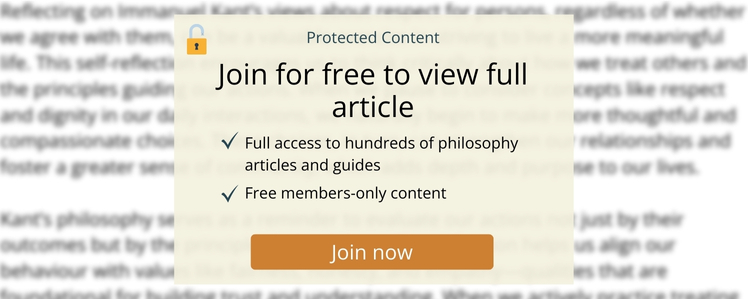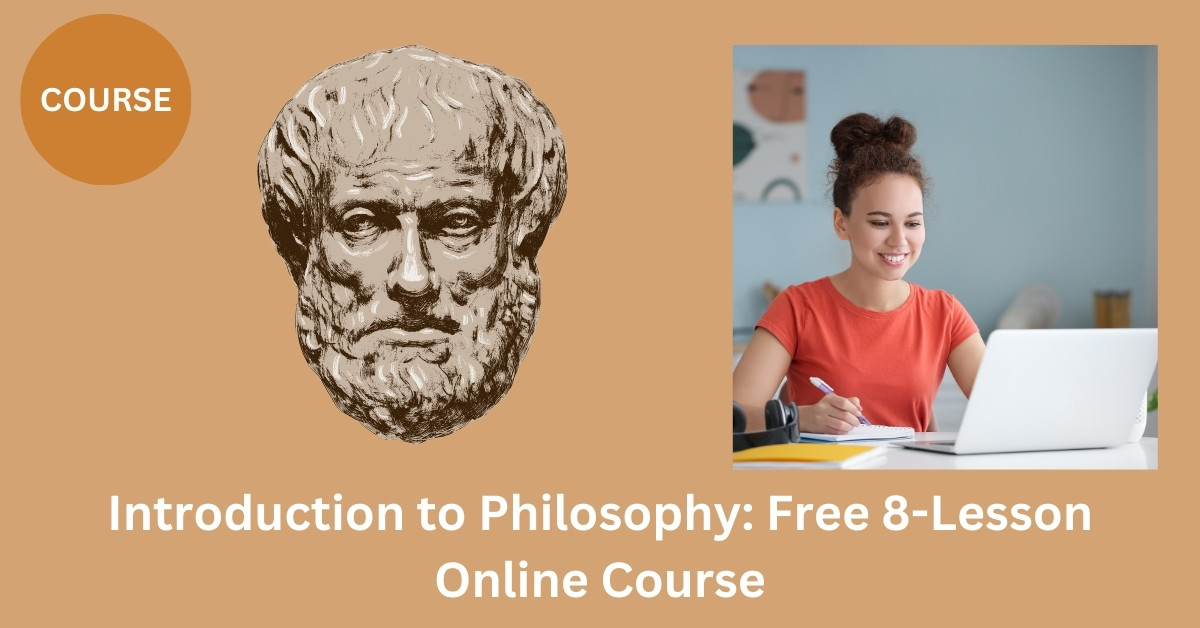Exploring philosophy can be a gateway to living a more meaningful life, yet understanding the differences between various philosophical views, like those of Nietzsche and utilitarianism, is crucial. Grasping these differences can significantly enhance how philosophy informs our quest for a fulfilling life. In the following sections, we will delve into Nietzsche’s ideas, the principles of utilitarianism, and how each can impact our journey towards living with purpose and meaning.
Key features of Nietzsche’s philosophy

Will to Power
The concept of the “Will to Power” is central to Nietzsche’s philosophy and reflects his belief in the fundamental driving force behind human actions and life itself. Nietzsche posits that life is primarily about domination and control, not merely survival or reproduction, as proposed by Charles Darwin. The will to power is not just a physical or social assertion but also a creative and spiritual force. It manifests in the world’s desire for growth, achievement, and overcoming obstacles. According to Nietzsche, every individual possesses this intrinsic will to enhance their position, abilities, and influence. In essence, the will to power influences how humans shape their lives, art, and societies. It is about striving for excellence and self-overcoming, motivating individuals to push their boundaries and redefine new possibilities for themselves. This perspective rejects fixed values and encourages the pursuit of self-defined goals, embodying universal dynamic and transformative energy.
Eternal Recurrence
Nietzsche’s idea of “Eternal Recurrence,” or “Ewige Wiederkehr,” invites individuals to live their lives as if they would have to relive each moment eternally. This philosophical construct is less about a literal cosmic cycle and more a thought experiment urging introspection about one’s life choices. By contemplating eternal recurrence, Nietzsche challenges individuals to reflect on the authenticity and values of their decisions; would they be able to joyously embrace living the same life, with its moments of triumph and despair, infinite times? This concept pushes individuals toward a mindset of embracing life fully, understanding and accepting suffering as an integral component of existence, and appreciating profound experiences with equanimity. It encourages conscious decision-making, living with purpose, and taking responsibility for one’s actions, as though each instance will repeat endlessly. Through this, Nietzsche emphasizes the importance of creating a life worth living and asserting one’s power and creativity against the void.
Übermensch (Overman)
Nietzsche’s notion of the Übermensch, or Overman, describes an individual who has transcended the ordinary limits of humanity to create and define their own values. This figure is not bound by conventional moral frameworks but instead develops a personal ethos based on strength, courage, and authenticity. The Übermensch represents Nietzsche’s vision of what humanity could become when liberated from societal constraints and mediocrity. This concept challenges traditional beliefs and encourages overcoming the limitations imposed by religion, culture, and morality. Nietzsche saw the Übermensch as a manifestation of the highest potential of human evolution, embodying extreme individuality and a life-affirming spirit. The Overman sets a course through an internal compass and is capable of embracing chaos, transforming it into a personal narrative of greatness. By aspiring to become an Übermensch, individuals can attain fulfillment and redefine the essence of their existence, living life as creators of their own realities.
His concept of the “übermensch” or “superman,” which is notably discussed in his work “Thus Spoke Zarathustra.” The übermensch represents an individual who has transcended the conventional values of society and has created their own set of values, living life with passion, creativity, and individualism. This figure embraces the idea of eternal recurrence, accepting life in all its highs and lows as a recurring cycle and finding meaning within it. The übermensch inspires others to break free from the herd mentality and take control of their destiny. By embracing the chaos and challenges of life, this figure embodies the potential for human greatness, motivating individuals to overcome limitations imposed by archaic morals and societal norms. The concept serves as a catalyst for self-overcoming and personal transformation, pushing humanity toward a higher state of existence.
Key features of utilitarianism
Consequentialism
At the heart of utilitarianism is the principle of consequentialism, which posits that the moral worth of an action is determined solely by its outcomes. Unlike deontological theories that focus on the inherent nature or intentions behind actions, utilitarianism assesses the rightness of an action based on its capacity to produce good consequences. This feature grounds the theory in practicality, aiming for the outcomes that maximize overall benefit or happiness. When faced with a moral decision, utilitarianism advises individuals to predict and evaluate the consequences of various actions, choosing the one that yields the greatest net positive result. It implores individuals and societies to act in ways that contribute positively to the overall well-being, considering the greater common good
Utility Maximization
Utility maximization refers to the aim of producing the highest amount of good or happiness, often simplified with the formula: the greatest good for the greatest number. This central tenet of utilitarianism emphasizes that actions ought to be evaluated based on their ability to generate welfare or reduce suffering for the most people possible. This principle guides decision-making processes across individual and societal levels, prioritizing actions that serve the broadest possible demographic. In utilitarian ethics, this maximization process involves careful, often quantitative analysis of potential benefits and harms associated with various choices, leading to decisions that promote the largest aggregate increase in utility. It underscores efficiency and effectiveness in ethical reasoning, aligning moral actions with the broader goal of enhancing collective well-being.
Impartiality
Impartiality in utilitarianism stresses that each individual’s happiness or welfare is equally important, demanding that moral agents treat all interests with equal consideration. This feature inherently rejects the idea of privileging one’s own interests or those of one’s immediate community over others. Utilitarianism encourages a global perspective, where moral decisions account for the well-being of all individuals affected, regardless of personal connections or biases. This impartiality turns moral evaluation into an egalitarian exercise, where all preferences and impacts are weighed fairly and equitably. It ensures that actions are judged based on the overall balance of happiness produced, without giving undue weight to particular individuals or groups, reinforcing the theory’s commitment to fairness and equality in ethical decisions.
Reflecting on the meaningful life
Reflecting on the contrast between Nietzsche’s philosophy and utilitarianism holds practical importance for those striving to lead more meaningful lives. One crucial aspect of this reflection is the different perspectives these philosophies offer on the value of individualism versus collective good. Nietzsche often emphasizes the power and importance of the individual, advocating for personal authenticity and the pursuit of personal greatness. This focus encourages introspection and self-awareness, prompting individuals to evaluate their unique desires, strengths, and purpose. By integrating these insights, individuals can craft a life centered around the pursuit of personal fulfillment, potentially uncovering a deeper sense of meaning.
In contrast, utilitarianism is driven by the notion of maximizing happiness or well-being for the greatest number of people. This philosophy prompts individuals to consider the broader impact of their actions, encouraging a sense of empathy and responsibility toward the welfare of others. By examining this contrast, one can engage in a more comprehensive exploration of personal motivation, responsibility, and ethics. Understanding these competing frameworks can allow individuals to strike a balance between self-interest and the welfare of others, promoting both personal satisfaction and social harmony.
Furthermore, this reflection aids in confronting life’s inherent challenges and contradictions. Nietzsche’s philosophy often embraces life’s hardships and chaos as an integral part of the human experience, encouraging the notion that struggle and suffering can lead to growth and the creation of value. This perspective challenges individuals to find meaning in adversity, providing resilience and fostering personal development. On the other hand, utilitarianism offers a more systematic approach to evaluating the moral implications of actions, providing a framework for making ethical decisions amidst uncertainty.
Exploring these philosophical contrasts can also aid in the development of critical thinking skills, as individuals are encouraged to question the moral underpinnings of their choices and the societal norms they encounter. This deeper understanding can lead to a more deliberate and engaged approach to life, where individuals are better equipped to navigate the complexities of modern existence. It fosters a mindset that is open to diverse perspectives and one that values both personal autonomy and the well-being of the broader community.
Finally, reflecting on these differences can lead to a more nuanced appreciation of the diversity of human thought and values. By examining the tension between Nietzschean individualism and utilitarian collective ethics, individuals may develop tolerance and empathy for varying worldviews, enhancing interpersonal relationships and fostering a more inclusive society. This philosophical inquiry highlights the multifaceted nature of meaning, prompting individuals to continuously reevaluate personal beliefs and societal roles as they strive toward a fulfilling and meaningful life. Through this balanced and thoughtful engagement with philosophical ideas, one can cultivate a more robust understanding of what it means to lead a life that is both deeply personal and connected to the larger human experience.
Questions for reflection about Nietzsche’s philosophy and utilitarianism
How does Nietzsche’s concept of the “will to power” contrast with the utilitarian pursuit of the greatest happiness for the greatest number?
Understanding this contrast challenges us to consider individual ambition versus collective well-being, prompting reflection on whether personal empowerment or societal happiness leads to a more fulfilling life.
In what ways do Nietzsche’s views on morality differ from utilitarian ethical frameworks?
Exploring these differences helps us examine the role of conventional morality in shaping our values, encouraging us to question their impact on our personal quest for meaning.
Can Nietzsche’s idea of “eternal recurrence” coexist with the utilitarian principle of maximizing utility?
Contemplating this coexistence invites philosophical reflection on temporal perspectives in decision-making, asking whether repetitive existence alters how we define meaningful action.
How do Nietzsche’s criticisms of herd mentality relate to utilitarian emphasis on collective happiness?
Nietzsche’s critique offers insight into the balance between individuality and conformity, urging us to evaluate how societal pressures influence our personal and ethical choices.
How do the notions of pain and suffering differ between Nietzschean philosophy and utilitarianism?
Analyzing these perspectives encourages us to reevaluate the role of suffering in achieving personal strength and growth, versus the utilitarian goal of minimizing it for greater happiness.


